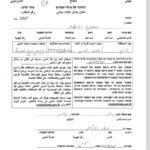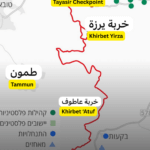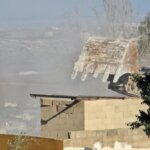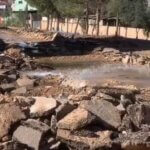Bio Gas Reactor in Jordan Valley
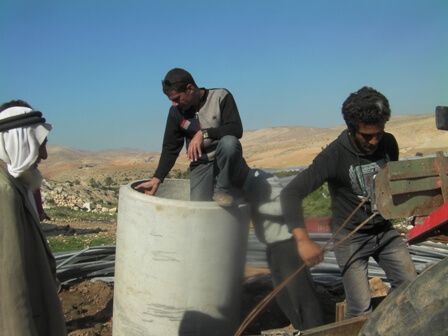
See our photos of Bio Gas reactor on flickr here
Jordan Valley Solidarity is building a bio-gas reactor in a bedouin home in Furush Beit Dejan. The construction process is straight forward, the inexpensive materials can be sourced locally, and the reactor will provide gas for domestic use.
Bedouin communities have historically had a very low impact on the environment in which they live, using resources that were accessible, and living on land that could provide for their essential needs, such as water, grazing for their animals, and fuel. However, the repression of bedouin communities by the Occupation, and its drive to force them from their land, has destroyed many traditional practices.
Jordan Valley Solidarity has been re-introducing long established construction methods back into our communities (such as building mud brick houses) and introducing newer sustainable technology in keeping with this. This gives communities that are faced with ethnic cleansing the means to be able to stay on their land (using resources which are available and cheap) and preserves the natural environment for future generations.
This is in stark contrast to the Israeli settlements that surround our communities, which are destroying the environment by over extraction of water, industrial scale farming heavily reliant on fertilisers and pesticides, and introduction of non-indiginous plants and animals. Their waste products, such as raw sewage and huge amounts of rubbsih are then discharged onto land right next to Palestinian communities.
Biogas technology is a simple process, the manure ferments using 3 different bacteria’s. The active ingredient is methanogenic bacteria which oxidizes the molecules and creates CH4 or methane. This gas is later burned in the kitchen so families will not have to buy kerosene (which is expensive and complicated to source in the valley).
Volunteer Mohammed commented: “It’s good because we can cook food and do anything with the gas. After we get the system working we can build them in other homes. Gas won’t cost money any more, all we need to do is add water and the amount needed is normal.”
The system requires 20-30 kg of manure and 20-30 litres of water daily, which is mixed together. It is then added to the reactor which works in a continuous process, so when 50 kg is put into the reactor, another 50 kg of organic natural fertiliser is produced.
The system can create CH4 at a volume dependent on the internal volume of the reactor (currently 1.5 m3 will produce between 1-2 hours of gas). Other important variables also have to be taken into consideration: the Tª, the pressure, and the kind of water added (clean water without any soap residue is much better since the soap can eliminate bacterias) and so on.
The reactor is constructed of a cylinder made from concrete, a base of concrete to avoid leakages, a floating drum to adapt the existing internal pressure and 2 pipes (outlet and inlet). The system operates in a very simple way and doesn´t need any compression or any external control.
JVS volunteer Carlos said he initiated the action because: “Getting kerosene gas is complicated in the valley. It is expensive and takes 2-3 hrs to collect, so this was the perfect place to work. Gaining experience in Nepal was another reason to do it and I had some money to be invested. After 3 years volunteering in the valley I finally found something where my engineering is useful!

